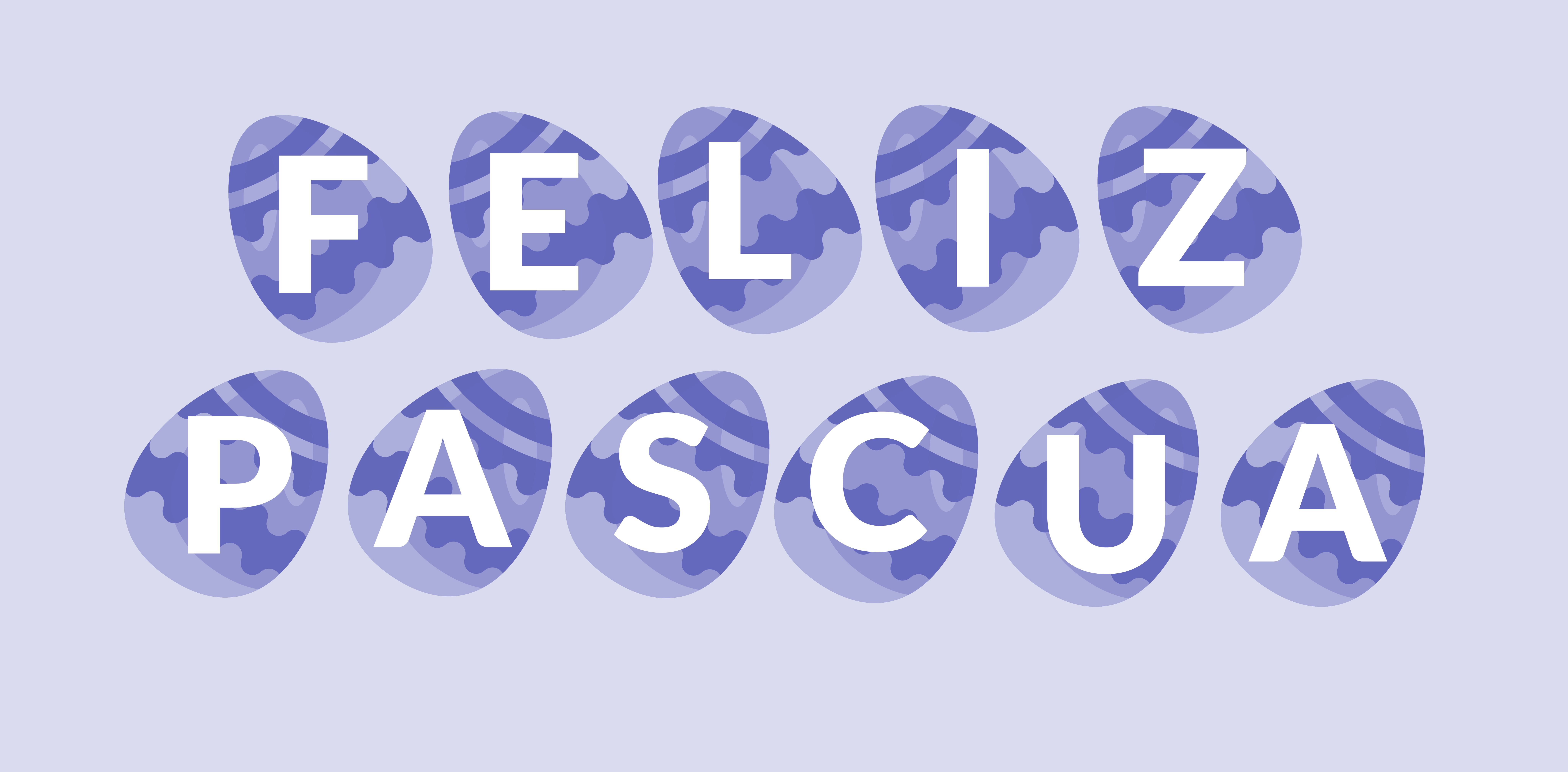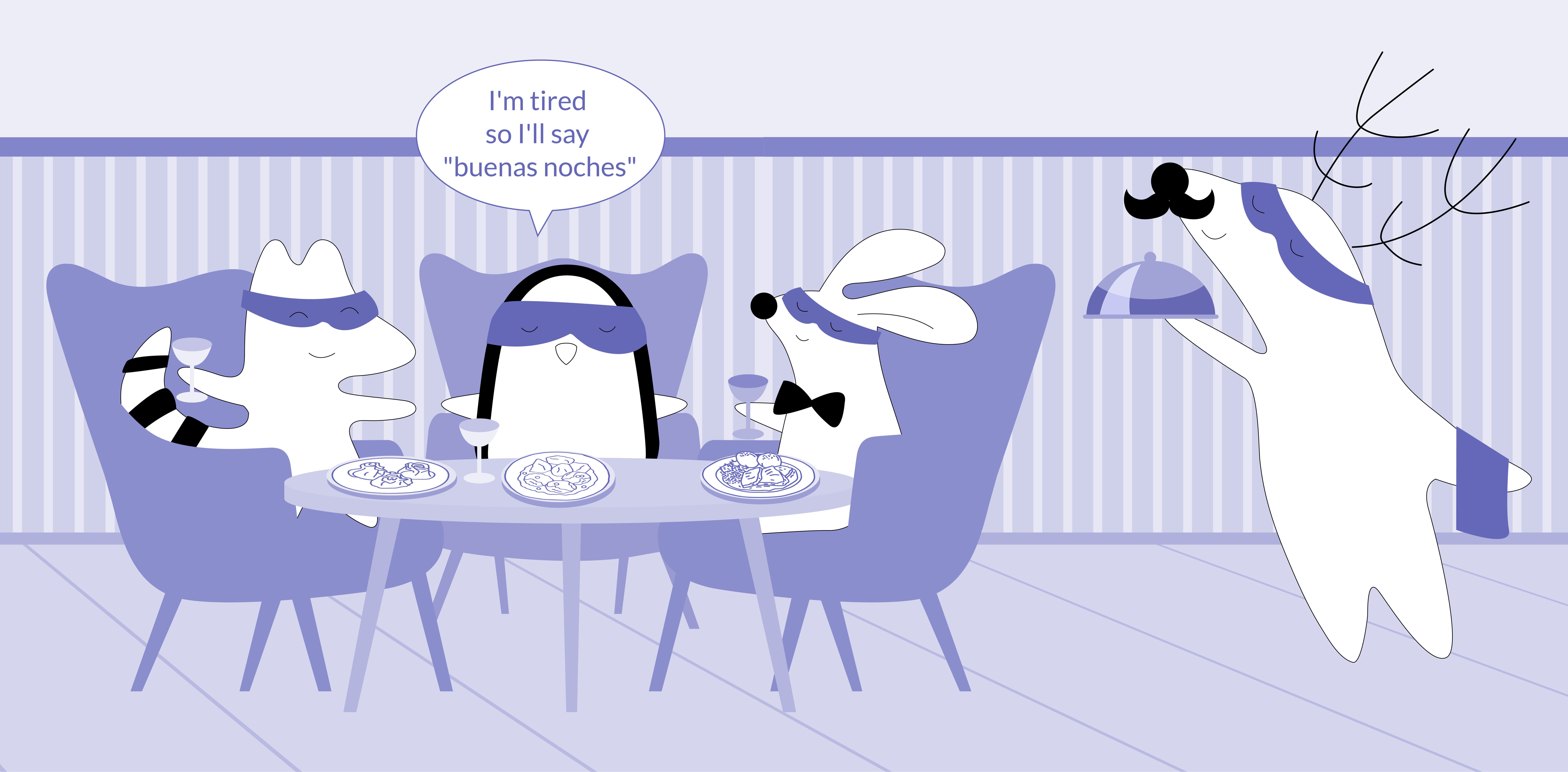
As we approach the vibrant and joyful season of Easter, you may find yourself wanting to wish your Spanish-speaking friends a "Happy Easter."
If so, this guide will be of great assistance to you. It's handy to know some Spanish words, especially for occasions like Easter, whether for expanding your cultural knowledge or for communicating with Spanish speakers in their native language.
The phrase "Happy Easter" in Spanish is Feliz Pascua. This expression is widely recognized and used across all Spanish-speaking countries during the Easter season.
By learning how to wish Feliz Pascua, you'll be adding a valuable phrase to your Spanish vocabulary, making it easier to connect with people in those countries during the festive Easter celebration.
Learn Spanish with Langster
Easter Celebrations in Latin America
Easter in Latin America, just as in other parts of the world, is a deeply significant time marked by unique traditions and elaborate festivities. Each country in Latin America has its own distinctive ways of celebrating Easter, reflecting a rich blend of indigenous and Spanish influences.
In many parts of Latin America, the Holy Week*, or Semana Santa*, is observed through vibrant processions, dramatic reenactments of the Passion of Christ, and communal meals. In some places, colorful carpets of sawdust and flowers line the streets for these processions, demonstrating local artistic traditions.
Integral to these celebrations, the phrase Feliz Pascua resonates throughout, binding together diverse cultures with the shared sentiment of joy and renewal encapsulated by Easter.
Semana Santa: Processions, Mass, and Chocolate Eggs

The Holy Week, or Semana Santa, is the pinnacle of Easter celebrations in Latin America. It begins on Palm Sunday and culminates on Easter Sunday. This week is marked with solemn religious processions that often reenact the Passion of Christ.
These processions are grand affairs, featuring beautifully adorned floats that carry religious icons through the streets, accompanied by the rhythmic beats of drums and the melancholic tunes of saetas, traditional Spanish religious songs.
Apart from the processions, mass services hold significant importance during Semana Santa, especially on Maundy Thursday and Good Friday, which commemorate the Last Supper and the crucifixion of Jesus, respectively. Churches are filled with devout attendees, and the air echoes with prayers and hymns.

While the Holy Week is steeped in religious observances, there is also a lighter side to the celebrations. Many families and friends exchange gifts during this time, and Huevos de Pascua or Easter eggs, especially the chocolate ones, are a popular choice.
These sweet treats, often colorfully wrapped, symbolize new life and resurrection, adding a touch of joyful symbolism to the deep reverence of Semana Santa (together with other delicacies like a rosca de pascua).
Let’s review some Spanish expressions for the Easter holiday:
Spanish
English
El conejo de Pascua
Easter Bunny
Caza de huevos de Pascua
Easter egg hunt
Huevos de Pascua
Easter eggs
Domingo de Pascua
Easter Sunday
Semana Santa
Holy Week
Jueves Santo
Maundy Thursday
Viernes Santo
Good Friday
Resurrección
Resurrection
Cordero de Pascua
Easter lamb
Cirios Pascuales
Easter candle
Procesión
Procession
Misa
Mass
Saetas
Traditional Spanish religious songs
Vía Crucis
Stations of the Cross
Saying "Happy Easter" in Spanish

When Easter comes around, it's time to wish your friends and loved ones a "Happy Easter."
If you're wishing it to someone in Spanish, you would say Feliz Pascua. This phrase directly translates to "Happy Easter" in English and is widely used in all Spanish-speaking countries during the season of Easter. The pronunciation of Feliz Pascua is relatively straightforward: "fay-lees pah-skwa."
Alternatively, you can also say Feliz Semana Santa if you wish to talk about the Holy Week.
Spanish
English
Feliz Pascua
Happy Easter
Feliz Semana Santa
Happy Holy Week
Whether you're celebrating Easter in Spain or Latin America or conversing with Spanish-speaking friends, these two phrases will help you share the joy and spirit of the Easter season in their native language.
Remember, it's not just about the words – it's the warmth and intent behind them that truly convey your Easter greetings.
Spanish
English
Felices Pascuas
Happy Easter
Que tengan una feliz Pascua
May you have a happy Easter
Te deseo una feliz Pascua
I wish you a happy Easter
Que disfrutes de una feliz Pascua
Enjoy a happy Easter
Ten una Pascua llena de alegría
Have a joy-filled Easter
Espero que tengas una Pascua bendecida
I hope you have a blessed Easter
Feliz Pascua vs. Felices Pascuas
While both Feliz Pascua and Felices Pascuas are used by native speakers to convey Easter greetings, there is a subtle difference between the two.
Feliz Pascua translates directly to "Happy Easter" and is used to refer to the day of Easter itself. It is the most common way to wish others a happy holiday across all Spanish-speaking countries.
On the other hand, Felices Pascuas translates to "Happy Easters" in English. This plural usage is more prevalent in certain regions, such as Spain and Argentina, where it is used to convey wishes for the entire Holy Week, including Good Friday and Easter Monday, and not just Easter Sunday.
Therefore, Felices Pascuas encompasses the broader time frame of Easter celebrations.
Knowing the difference between Feliz Pascua and Felices Pascuas can help you choose the most appropriate phrase depending on the context and the specific traditions of the region you are addressing.
The Bottom Line

In conclusion, understanding and embracing the rich traditions and vocabulary of Easter celebrations in other languages can greatly enhance your cultural knowledge and language skills.
The diversity in the usage of phrases like Feliz Pascua and Felices Pascuas underscores the vibrant and varied ways in which different regions celebrate the same festival. Furthermore, by incorporating such phrases into your Spanish vocabulary, you can connect more deeply with Spanish-speaking friends and communities during the festive Easter season.
To continue your journey of language learning, use as many resources as you can, like the Langster app. Langster offers an extensive array of resources to learn Spanish, including vocabulary-building exercises, interactive lessons, and cultural insights.
Whether you are a beginner or an advanced learner, Langster can help you broaden your Spanish vocabulary, improve your pronunciation, and gain a deeper understanding of the Spanish-speaking world. Remember, every word you learn brings you one step closer to fluency!
Learn Spanish with Langster









